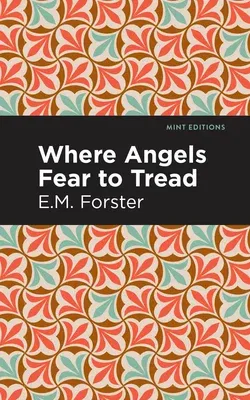Where Angels Fear to Tread (1905) is a novel by English author E.M.
Forster. The work was Forster's first novel, and its success helped
launch his lengthy and critically acclaimed career as a writer of
literary fiction. Where Angels Fear to Tread--the title is drawn from
Alexander Pope's An Essay on Criticism (1711)--is a moving meditation
on class, gender, social convention, and the grieving process.
Following the death of her husband, a widow named Lilia Herriton travels
to Tuscany with her friend Caroline Abbott. In Italy, Lilia falls in
love with a young Italian named Gino, with whom she decides to remain.
This prompts a fierce backlash among members of her deceased husband's
family, who privilege their honor and name over Lilia's happiness.
Although they send Philip, her brother-in-law, to Italy in order to
retrieve her, Lilia has already married Gino, and is pregnant with their
child. When she dies in childbirth, however, a fight ensues over the
care of the boy, whom the Herritons want to be raised as an Englishman
in their midst. Philip returns to Italy with his sister Harriet, meeting
Caroline and devising a plan to wrest control of the boy from Gino, a
loving and caring father. Where Angels Fear to Tread is a novel that
traces the consequences of selfish decisions, the politics of family
life, and the social conventions which hold women prisoner to those who
claim to support them. The novel was an immensely successful debut for
Forster, who would go on to become one of England's most popular and
critically acclaimed novelists of the twentieth century.
With a beautifully designed cover and professionally typeset manuscript,
this edition of E.M. Forster's Where Angels Fear to Tread is a classic
of English literature reimagined for modern readers.


